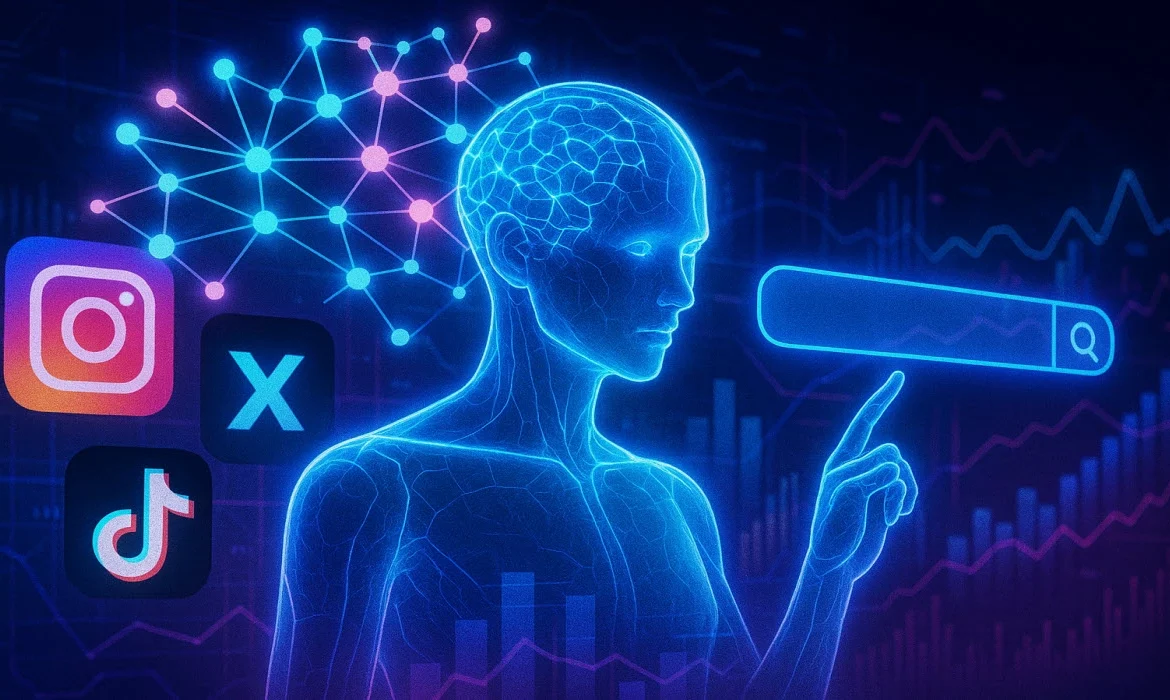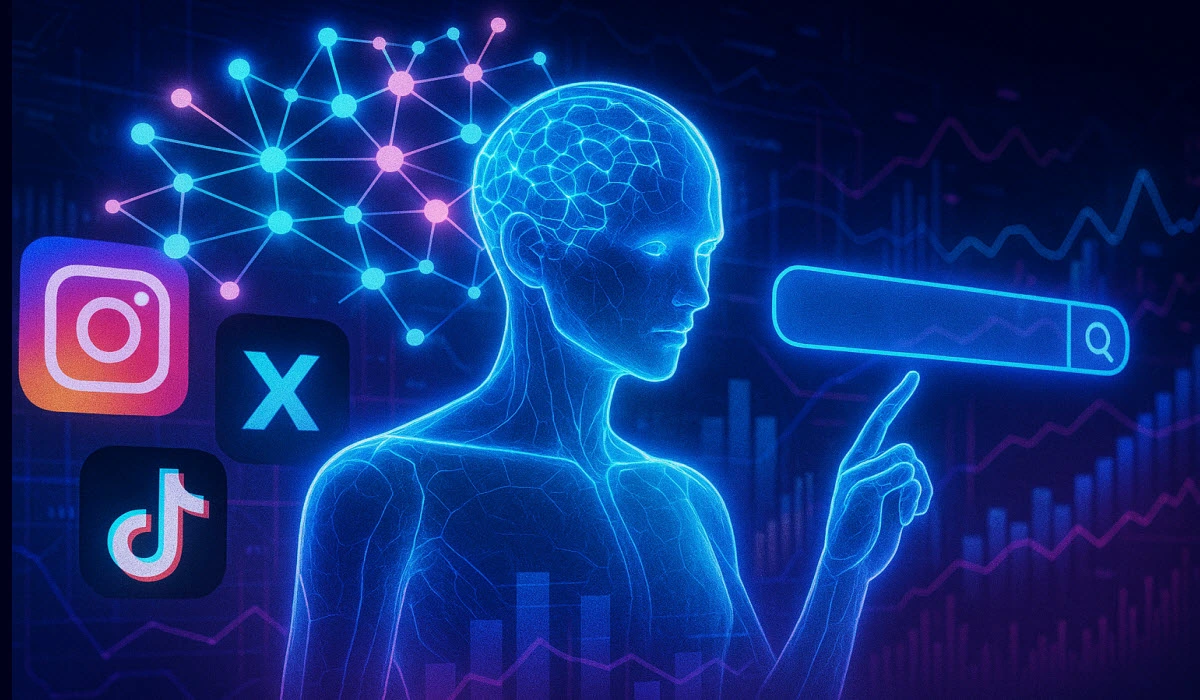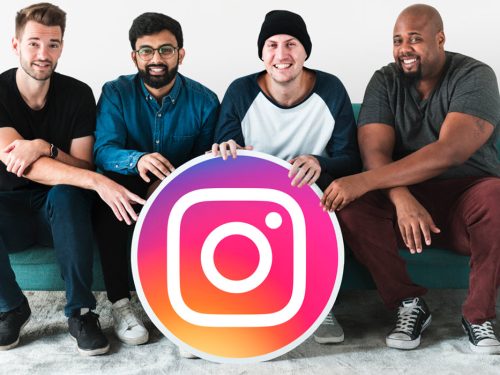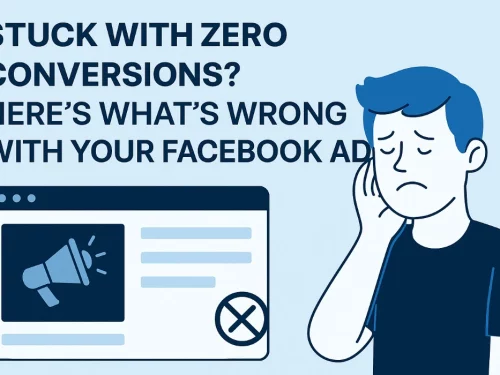The New Reality: A Marketing Manager’s Wake-Up Call
Meet Sarah, a savvy marketing manager at a mid-sized fashion brand. Her team had a clear formula: Instagram and Facebook for awareness, SEO blogs for traffic, and email campaigns for conversions. It worked for years. But recently, something changed.
Organic search traffic dipped. Her SEO-optimized blogs ranked lower. Yet, oddly, her social media engagement skyrocketed.
One day, she
asked ChatGPT, “What are the best sustainable fashion brands?” Her own brand appeared—not because of backlinks, but because of a viral TikTok campaign that sparked user discussions and media mentions.
That’s when it clicked. AI search had changed the game.
Where Traditional Funnels Are Failing
Sarah isn’t alone. Marketers across industries are hitting walls:
- Viral without Value: Posts rack up views and likes but don’t translate into website visits or conversions.
- SEO Disruption: AI-generated answers in search engines reduce traditional organic traffic. Your content is still online but no longer visible.
- Disconnected Discovery: Users find your brand on TikTok or Instagram, but the journey ends there. They don’t transition to search or direct visits.
- Vanishing Attribution: AI tools influence buyer decisions, but tracking that influence is difficult. Marketers can’t prove ROI or trace user behavior.
- Over-reliance on Outdated Metrics: Metrics like impressions and likes no longer reflect actual influence or buying intent.
- Content Overload: With the rise of AI tools summarizing information, only the most relevant and engaging content gets pulled into AI answers. Everything else gets buried.
- Lack of Unified Strategy: Social and search teams often work in silos, creating disjointed user journeys and missed opportunities.
Stat: HubSpot (2024) found that 47% of Gen Z now use TikTok for brand discovery before turning to Google.
Fact: According to Gartner, by 2025, 30% of all searches will be done through AI tools instead of search engines, bypassing SEO entirely.
Your funnel isn’t broken—it’s being rewritten in real time.
The Shift: AI Search and the Social Crossover
AI-powered tools like ChatGPT, Bing AI, and Google SGE (Search Generative Experience) are transforming how users interact with information:
- AI summarizes answers based on relevance, authority, and user behavior—including social engagement.
- Brands mentioned frequently on social or in forums are being pulled into AI responses.
- Users now get answers, recommendations, and brand insights directly from AI—often bypassing traditional search and website navigation.
Real-Life Example: Duolingo leaned into TikTok with quirky, engaging content. This social buzz led to widespread online mentions, resulting in ChatGPT and other AI platforms recommending Duolingo organically. Their social content became their SEO engine.
Social media has gone from a top-of-funnel tool to an omni-funnel driver.
What This Means for You
- TOFU, MOFU, and BOFU: Social is no longer just for awareness. It’s playing a role in decision-making and even conversions.
- AI Search Rewards Authenticity: Relatable, useful, and shared content on social is now feeding AI engines.
- User Intent Has Shifted: People ask AI for product comparisons, recommendations, and reviews—and AI pulls data from where users are most active: social platforms.
This shift means marketers must rethink their approach to content and channels. Social is no longer an add-on—it’s a core pillar of digital visibility.
Strategy Shift: How to Adapt Now
To win in this new AI-social landscape, brands must evolve their marketing strategy:
- Create Content with AI Discoverability in Mind:
- Focus on relevance, quality, and engagement.
- Ensure your content answers real user questions.
- Include brand mentions in places AI tools pull from (Reddit, YouTube, TikTok, etc.).
- Turn Social Media into a Knowledge Channel:
- Break down long-form content into short, high-impact insights.
- Use visual storytelling: carousels, reels, and stories that explain, educate, and inspire.
- Invest in Community-Driven Content:
- Encourage User-Generated Content (UGC) that includes your brand name.
- Reward shares, reviews, and brand mentions with giveaways or reposts.
- Optimize Social Profiles for AI Indexing:
- Clear bios, keywords, hashtags, and links.
- Keep your brand voice consistent and your value proposition front and center.
- Monitor AI Search Tools:
- Regularly ask AI questions about your niche.
- Track where your brand is mentioned and why.
- Analyze what types of content AI prefers to pull.
Brands that adapt quickly will be favored not just in AI rankings, but also in user trust and preference.
To win in this new AI-social landscape, brands must evolve their marketing strategy…
Staying updated is crucial—explore the latest social media trends shaping 2025 to ensure your strategy aligns with where the industry is heading.
How Evendigit Can Help
Don’t Just Post. Perform.
At Evendigit, we understand that the rules of engagement are changing. Our Social Media Marketing Services are built for this AI-influenced era.
What we do:
- Build content strategies that align with AI and user discovery trends
- Optimize your social for visibility in AI-powered search
- Use data-driven tools to track engagement, impact, and ROI
- Craft platform-specific content that drives conversation, not just clicks
- Guide your brand voice and positioning to be AI and algorithm-friendly
Whether you’re starting fresh or looking to restructure your funnel, we’re here to help you stay ahead.
Ready to evolve your social media strategy? Explore Our Services
Final Thoughts: Embrace the New Funnel
The marketing funnel hasn’t disappeared. It’s just not linear anymore. Social media is no longer a billboard—it’s the engine behind discovery, trust, and action in the AI age.
Sarah adapted, and so can you.
Want to find out how your brand appears in AI search? Or how to get your social content in front of the right eyes?
Let’s start that conversation.
FAQs
Q1: How is AI changing social media marketing?
AI is transforming social media marketing by influencing how content is discovered, ranked, and recommended. AI tools analyze engagement patterns, user behavior, and brand mentions to determine which content surfaces in AI-generated answers—making social media a key driver in the visibility and decision-making process.
Q2: What is the funnel in social media marketing?
The social media marketing funnel traditionally includes Top-of-Funnel (TOFU) for awareness, Middle-of-Funnel (MOFU) for engagement and consideration, and Bottom-of-Funnel (BOFU) for conversion. With AI integration, social media now impacts all stages simultaneously.
Q3: What is the role of AI in social media?
AI helps optimize post timing, analyze sentiment, personalize content, and generate predictive analytics. But more importantly, AI platforms like ChatGPT or Google SGE now pull social content into search results, influencing brand visibility and trust.
Q4: What is AI funnel in marketing?
An AI funnel leverages artificial intelligence to automate and enhance each stage of the buyer’s journey—from discovery and engagement to conversion and retention. AI helps identify user intent, serve tailored content, and guide the user with predictive insights.





